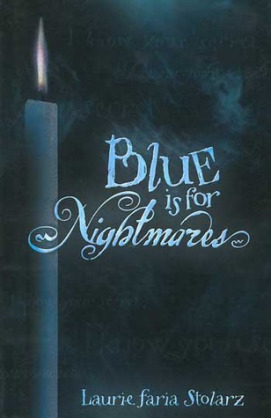
Been busy with the beginning of school and a review essay that’s been bedeviling me, but wanted to pop in to say a few words about Agnes Ravatn’s The Bird Tribunal, which I devoured in a couple of sittings over the last few days. This is Ravatn’s first book in English, ably translated by Rosie Hedger. I gather it’s been adapted as a play, which I can absolutely see working, and now a movie’s coming, and that could be quite good too. The Bird Tribunal is one of those books with lots of shortish sections that make it so easy to say, Well, I’ll just read one more. And it’s so damn unsettling that you’ve no choice but to find out what’s going on.
Briefly: Allis Hagtorn is a former academic and TV personality (apparently these things are not mutually exclusive in Norway, though I have my doubts) who’s been disgraced (for reasons that are eventually revealed but not ultimately that interesting) and needs to run away from her old life. She answers an ad to be a live-in companion to a man in an isolated house somewhere in Norway. (Norwegians or better informed readers might be able to locate the setting more precisely: suffice it to say it’s on a fjord.) Her employer is Sigurd Bagge, a man taciturn to the point of pathology, brooding, mercurial, actually pretty frightening. He does some kind of unspecified work in a room he keeps locked. He needs Allis to cook, clean, and tend to the now-overgrown garden. His wife is away, has been for some time, and, it seems, isn’t coming back anytime soon.
So the book nods to the Gothic, intimates a Bluebeard situation, but it does so in the least Gothic prose imaginable. Instead it’s stripped down, spare, as if to support our stereotypes of Scandinavian minimalism. Others might not find this an interesting as I did–I’m a total sucker for stories about loners who retreat to the forests of the North, who live simple but comfortable lives, who don’t seem to need to work, except for whatever work they do with their hands around the house or in the garden, yet who still read and drink whisky and are quite cultured without making a big deal about it. Bits of Per Petterson’s Out Stealing Horses are like this (I was captivated by that book all out of proportion to its actual merit, I suspect); some of Henning Mankell’s crime fiction features these similar scenarios.
What’s interesting in Ravatn’s book is the way she juxtaposes this scenario—which is usually about contemplation, where retreating from the world is a way to live better, or a reward for a life well lived—with the conventions of the psychological thriller, where retreat is about grief, trauma, or terror.
Bagge’s a puzzle, and so moody it’s hard to identify with him. But so is Allis. I found her immense need for Bagge’s self-regard irritating, but I appreciated that she does, too: she’s always checking and berating herself. I also liked the intimations that Allis is in fact really not that nice a person, or, maybe more accurately, that an unpleasant, unstable person is lurking inside her, threatening to come out but never quite doing so. Ravatn’s first-person narration effectively keeps us off-kilter.

The best thing about the book is that it teases you all the time, and just when you think you’ve figured it out, it changes course on you. (The push-pull between the characters, and the corresponding attraction-repulsion we feel for the characters is another way that slippery quality makes itself felt.) Even better: even when we do guess what’s going on, the book always has another trick to pull on us. It makes us feel confident as readers, lets us bask briefly in our cleverness, then pulls the rug out from under us again: a more interesting, less exploitative, and blessedly much shorter Gone Girl.
And if you like all things Scandinavian as much as I do you’ll also love the descriptions of weather and landscape. These are atmospheric but never overdone. As I write this review, I realize that what I liked best about the book is its modesty. (Very Scandinavian!) Less successful, to my mind, though I’d need to read it again to be sure, are the most self-consciously literary elements of the book: a dream that gives the book its title—and introduces the term skjemtarverk, “an irremediable act, a crime so serious that no fine or any other kind of reparation could atone for it”: this term is convincingly untranslated because even Allis, an expert on Norwegian history, has to look it up—and an extended reference to Norse myth. Maybe if I’d ever read the Eddas or had even the slightest clue what’s what there I’d think differently about these moment. For me, though, they were more distracting than winning.

Finally, a question for anyone who’s read the book. Take a look at the last sentence. Is that a dreadful dangling modifier, or has something really strange happened? (Has Allis become, perhaps figuratively but it seems literally, the bird of prey that’s been referenced in various ways throughout the book?) If it is a dangling modifier, is this horror already present in Ravatn’s text or has it been introduced in the translation?
Anyway, bottom line: not life changing but completely satisfying. If you’re looking for something nervy and unsettling that won’t make you feel used, The Bird Tribunal might be the end of summer read you need.
Advertisements Share this:




